Can a Failing Battery Affect Your Car’s Fuel Pump – Shocking Truth!
Engine hesitation and stalling can sometimes indicate a failing battery rather than just a fuel pump issue. A weak battery can disrupt power to the fuel pump, causing irregular fuel delivery.
This can lead to poor engine performance and difficulties starting the vehicle. Replacing the battery often resolves these problems. Regular maintenance is crucial to avoid such issues.
Introduction:
A car’s electrical system is the lifeblood that keeps various components operating efficiently. While most drivers associate a failing battery with trouble starting the engine or dimmed headlights, its influence stretches far beyond these obvious symptoms.
One of the lesser-known consequences of a weak or dying battery is its potential to affect the fuel pump. The fuel pump plays a pivotal role in ensuring your vehicle receives the fuel it needs for combustion.
When a battery starts to fail, it can disrupt the power flow to the fuel pump, leading to a series of performance issues. Understanding the relationship between the battery and the fuel pump is essential for diagnosing and preventing serious mechanical problems.
The Relationship Between Battery Health and Vehicle Performance:
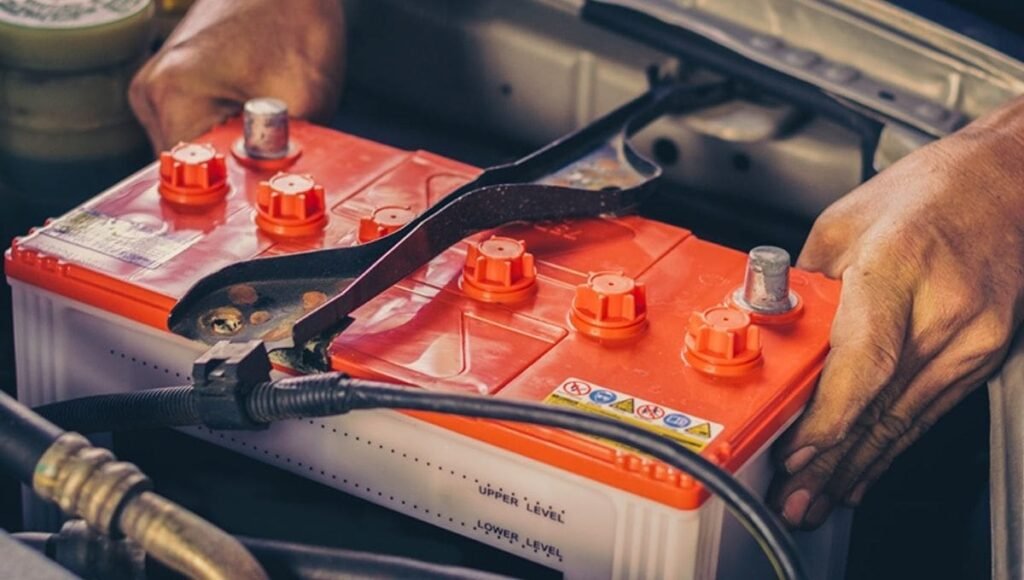
How a Vehicle’s Electrical System Powers Key Components:
At its core, the car battery provides the electrical energy required to start the engine, but its responsibilities extend much further. Once the vehicle is running, the alternator generates power, but the battery remains crucial for stabilizing voltage and supplying power to critical systems.
These include the lights, radio, and air conditioning, but more importantly, essential components like the engine control unit (ECU) and the fuel pump. If the battery fails to provide adequate power, these systems may operate inefficiently or fail altogether.
Why a Healthy Battery is Essential for Reliable Fuel Delivery:
A properly functioning fuel pump is crucial for consistent fuel delivery, ensuring the engine has the right amount of fuel at the right pressure. For electric fuel pumps, which are standard in modern vehicles, a steady flow of power from the battery is vital.
When the battery begins to fail, voltage fluctuations can prevent the fuel pump from maintaining the pressure needed for smooth engine operation. In turn, this can lead to performance issues like hesitation, stalling, or even complete engine failure in extreme cases.
read also: https://techsboost.com/can-using-aftermarket-parts-cause-battery-drain/
Understanding the Role of the Fuel Pump in Your Vehicle:
The Critical Function of the Fuel Pump in Fuel Delivery:
The fuel pump is responsible for drawing fuel from the gas tank and delivering it to the engine at a regulated pressure. This ensures the engine receives the proper mixture of air and fuel for combustion.
Without a functional fuel pump, the engine would be starved of fuel, leading to misfires, power loss, or an inability to start.
Electric Fuel Pumps: How Battery Power is Directly Connected
Electric fuel pumps, commonly found in modern cars, rely entirely on the vehicle’s electrical system. This means they are directly affected by the health of the battery. Unlike mechanical pumps, which operate through engine motion, electric fuel pumps require a consistent supply of electricity to function.
Any disruption in this power supply, such as that caused by a failing battery, can lead to erratic fuel flow, ultimately compromising engine performance.
Mechanical vs. Electric Pumps: Which Relies on Battery Power?
While mechanical fuel pumps are driven by engine movement and are less dependent on electrical systems, electric fuel pumps are standard in most vehicles today.
Electric pumps offer more precision and efficiency in fuel delivery but come with the downside of requiring continuous electrical power.
Thus, in vehicles with electric fuel pumps, battery health is critical for proper operation. If the battery struggles, the fuel pump follows suit, jeopardizing the engine’s fuel supply.
How a Failing Battery Disrupts Fuel Pump Operation:
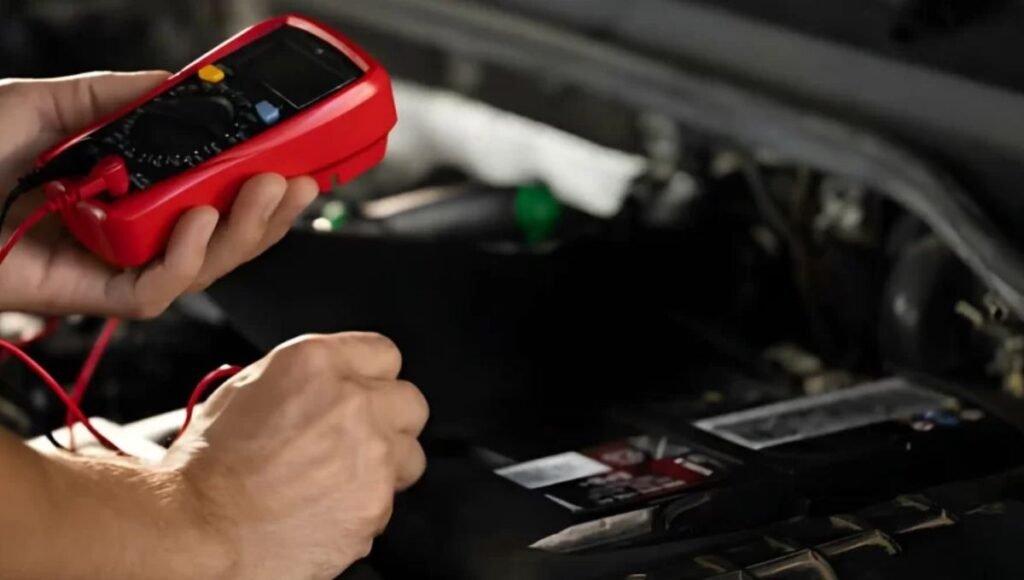
Voltage Drops: How Insufficient Power Affects Fuel Pressure
A healthy battery provides a stable voltage to all electrical components. However, when the battery weakens, it may experience voltage drops, where it can no longer supply consistent power.
For the fuel pump, this means a reduced ability to maintain proper fuel pressure. Inconsistent pressure leads to an engine starved of fuel, which manifests as sputtering, hesitation, or poor acceleration.
Erratic Fuel Delivery: The Impact of an Unstable Power Supply
Fuel pumps rely on a consistent electrical current to regulate the amount of fuel delivered to the engine. When the power supply becomes unstable due to a failing battery, the pump may deliver fuel irregularly, resulting in erratic engine performance.
You might notice a loss of power, rough idling, or difficulty accelerating, all stemming from poor fuel delivery caused by electrical inconsistencies.
Overheating and Burnout: Can a Weak Battery Damage the Fuel Pump?
A weak battery not only causes erratic fuel delivery but can also overwork the fuel pump. If the pump struggles to compensate for inconsistent voltage, it can become overheated and, in extreme cases, burn out entirely. Overworking the pump in this way reduces its lifespan and could lead to costly replacements sooner than expected.
read also: https://techsboost.com/can-using-too-many-accessories-at-once-drain-your-battery/
Signs Your Fuel Pump is Struggling Due to a Failing Battery:
Engine Hesitation or Stalling: Is the Battery to Blame?
One of the earliest signs of a fuel pump affected by a weak battery is engine hesitation or stalling. This happens when the pump can’t deliver enough fuel to the engine, causing it to struggle or stall during acceleration or at idle. If you notice these issues, the battery could be the hidden culprit.
Poor Fuel Efficiency: How Low Power Affects Fuel Delivery
Fuel efficiency can take a hit when the fuel pump isn’t operating at full capacity. If the pump fails to deliver the correct amount of fuel, the engine may compensate by consuming more fuel than necessary.
A failing battery that disrupts the fuel pump’s operation can lead to decreased miles per gallon and a noticeable increase in fuel consumption.
Difficulty Starting the Vehicle: Fuel Pump or Battery Issue?
If your car is having trouble starting, it’s important to consider both the battery and fuel pump as potential causes. A weak battery might not have enough power to activate the fuel pump, making it difficult to get fuel to the engine. In some cases, a failing battery and a struggling fuel pump could work together to create starting issues.
Diagnosing the Problem: Is the Fuel Pump or Battery at Fault?
Testing the Battery’s Voltage: Is It Supplying Enough Power?
Before assuming the fuel pump is faulty, it’s essential to test the battery’s voltage. A healthy battery should provide at least 12.6 volts when fully charged. If the voltage is lower, the battery might not be supplying enough power to the fuel pump, leading to performance problems.
Identifying Fuel Pump Issues Caused by Electrical Problems:
Electrical problems can mimic fuel pump failures. If the fuel pump is acting up, check for any signs of electrical failure before assuming the pump is broken. Low voltage from the battery, bad wiring, or a failing alternator can all affect the pump’s performance.
When to Consult a Professional: Battery vs. Fuel Pump Failures
If you’re unsure whether the fuel pump or battery is causing issues, consulting a professional is the best option. A technician can perform diagnostic tests to determine the root cause of the problem, ensuring you address the right issue and avoid unnecessary repairs.
Preventing Fuel Pump Issues Caused by Battery Failure:
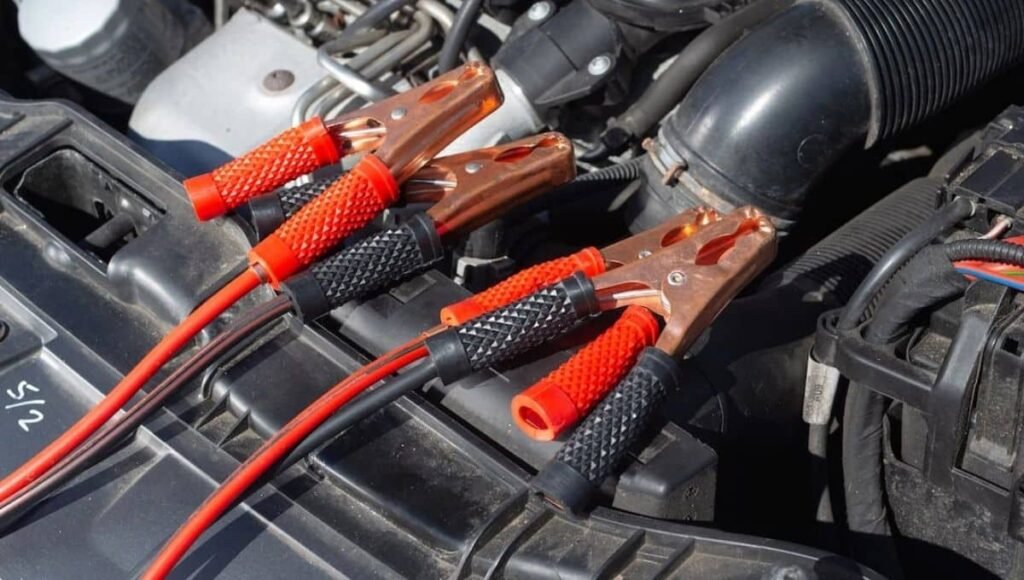
Regular Battery Maintenance: Ensuring Consistent Power Supply
To avoid battery-related fuel pump problems, regular battery maintenance is essential. Checking the battery’s voltage, cleaning the terminals, and ensuring it’s holding a charge can extend its lifespan and prevent fuel pump issues caused by low power supply.
The Importance of Timely Battery Replacement for Overall Performance:
Replacing your battery before it fails completely is a simple yet effective way to protect your fuel pump and other critical vehicle components. Don’t wait for the battery to fail entirely—replacing it at the first sign of weakness can save you from more significant repairs down the road.
How to Protect Your Fuel Pump from Battery-Related Issues:
Maintaining a healthy battery is the first step in protecting your fuel pump from damage. In addition to regular maintenance, ensure that your vehicle’s electrical system is functioning correctly, and replace your battery as needed to keep all systems, including the fuel pump, working efficiently.
read also: https://techsboost.com/how-to-identify-battery-related-issues-in-older-vehicles/
FAQ’s
1. Can a failing battery affect my fuel pump?
Yes, a weak battery can disrupt the power supply to the fuel pump, leading to performance issues like stalling or hesitation.
2. How does a battery affect fuel delivery?
The battery provides essential power for electric fuel pumps. Voltage drops can cause inconsistent fuel delivery, affecting engine performance.
3. What are signs of a fuel pump issue due to a failing battery?
Signs include engine hesitation, stalling, poor fuel efficiency, and difficulty starting the vehicle.
4. How can I diagnose if it’s the battery or fuel pump?
Test the battery’s voltage first; a healthy battery should read at least 12.6 volts. Check for electrical issues before assuming the fuel pump is faulty.
5. What preventive measures can I take?
Regularly maintain your battery, check its voltage, clean terminals, and replace it at the first signs of weakness to avoid fuel pump issues.
Conclusion:
Understanding the link between your car’s battery and fuel pump is crucial for reliable performance. A failing battery can lead to voltage drops, causing erratic fuel delivery and potential engine problems. Regular maintenance and timely battery replacement can prevent these issues, ensuring smooth operation and longevity for your vehicle’s critical components.
Read also:
https://techsboost.com/can-a-faulty-car-battery-cause-your-gps-tracker-to-malfunction-due-to-battery/
https://techsboost.com/can-a-battery-issue-cause-your-car-to-overheat/
https://techsboost.com/can-a-weak-car-battery-cause-ecu-problems/
https://techsboost.com/can-a-weak-battery-affect-transmission-shifting/
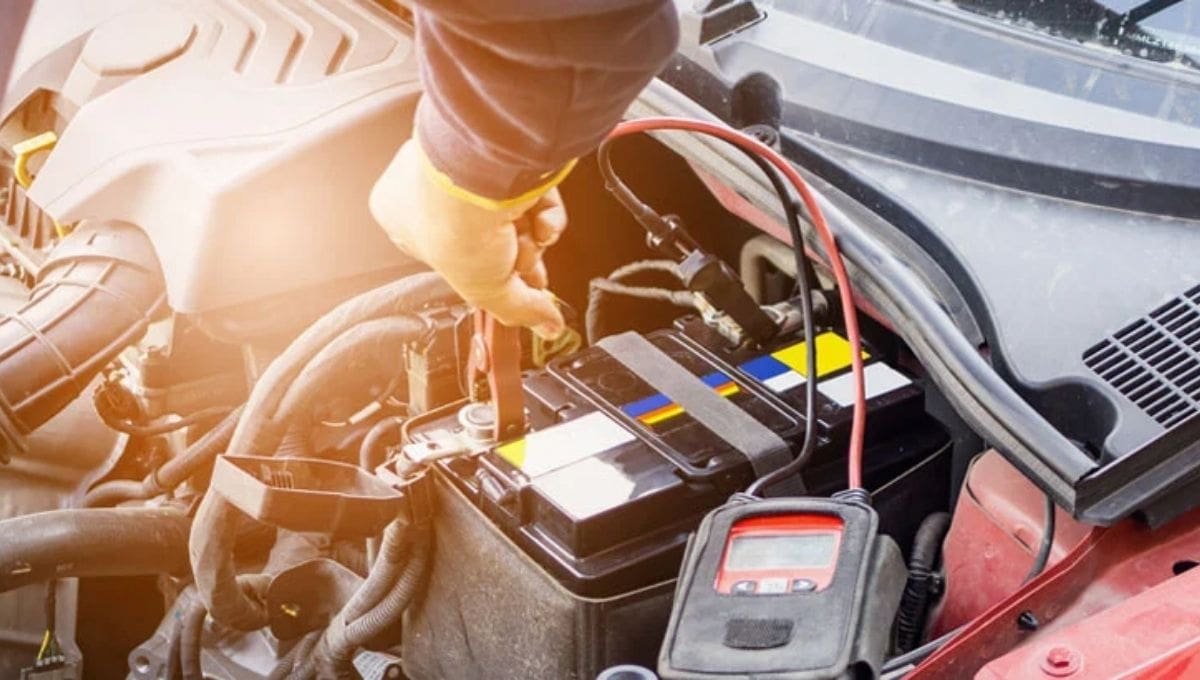

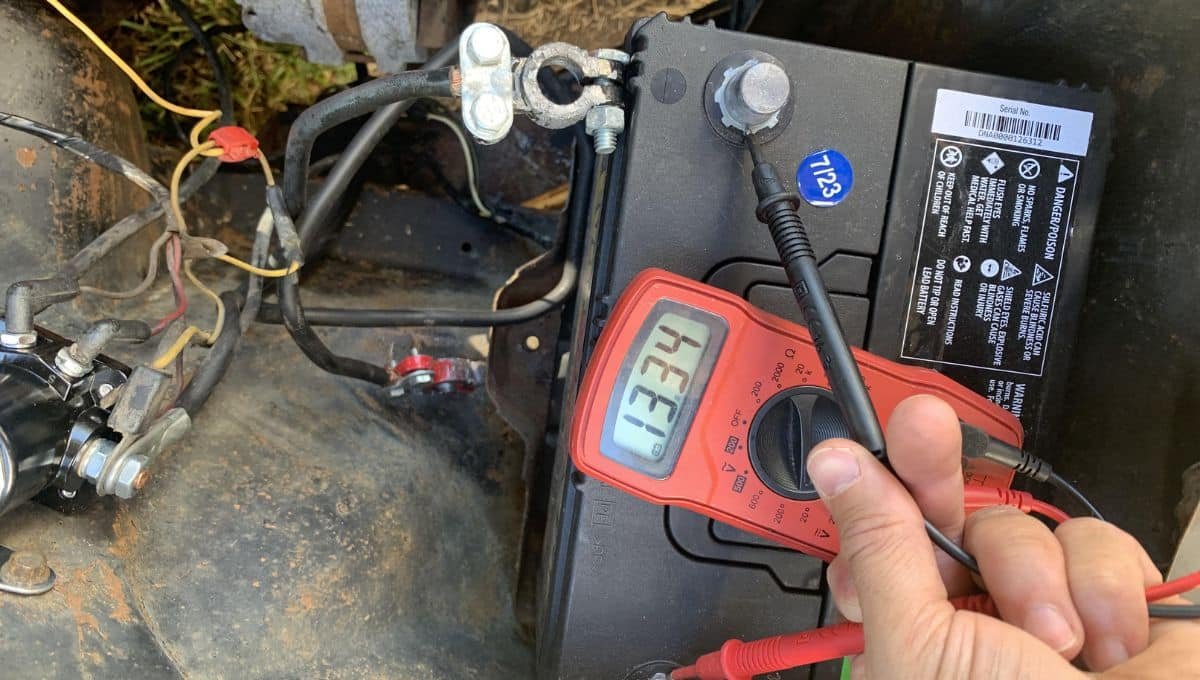


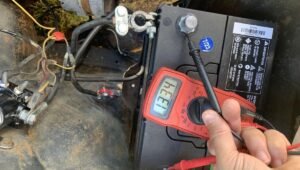


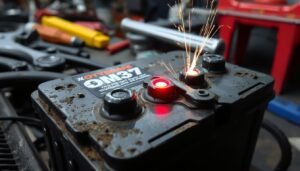

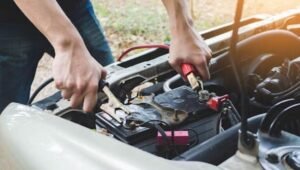
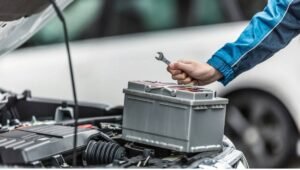
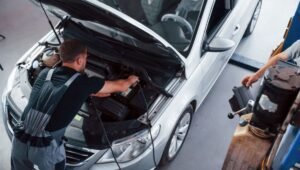
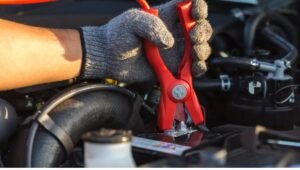
Post Comment